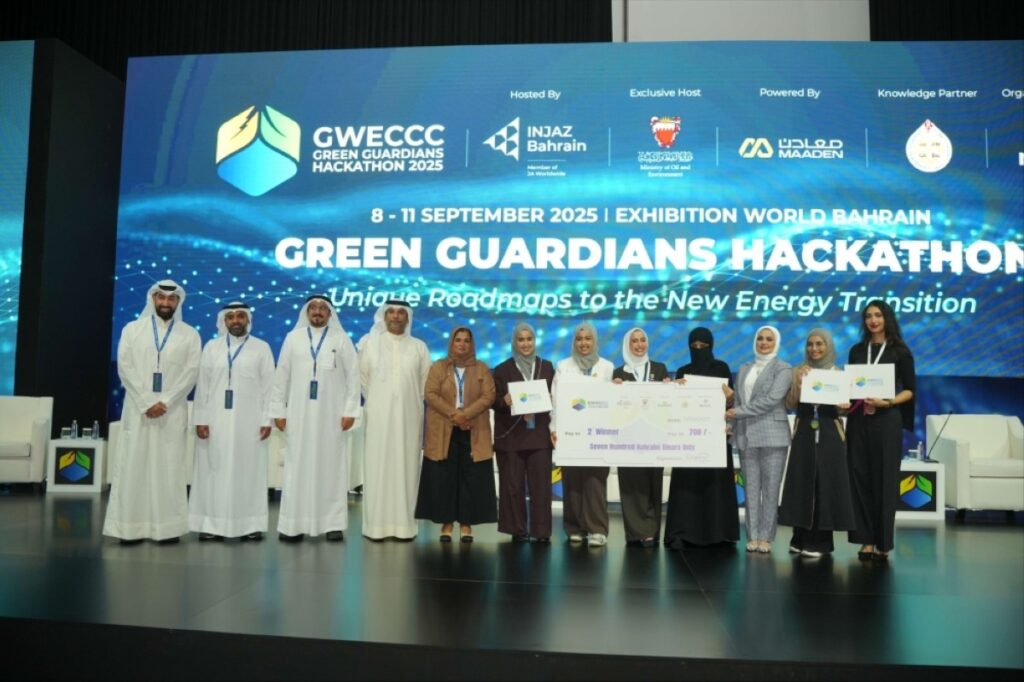MANAMA: A team from Kuwait University’s College of Engineering and Petroleum has claimed second place at the Green Guardians Hackathon in Bahrain, a competition judged on the quality of ideas and depth of environmental awareness. The university said in a press statement that students from the Department of Chemical Engineering participated in the hackathon, organized by Injaz Bahrain at Exhibition World Bahrain last week. The event brought together more than 100 students from 15 Gulf universities.
The Kuwait University team ranked second out of 21 participating teams, with the competition focused on practical and innovative solutions to energy and environmental challenges, aiming to achieve net-zero carbon emissions.
The team’s project, titled “Kuwait’s Path to Carbon Neutrality,” outlined a roadmap for sustainable energy in Kuwait. It proposed integrating solar energy with small nuclear reactors, engaging the private sector through power purchase agreements, and using green hydrogen as a means of energy storage to ensure supply sustainability and security.
According to the team’s model, Kuwait could achieve full carbon neutrality by 2060 by relying on 70 percent renewable energy and 20 percent nuclear energy—up from the current renewable energy share of just 0.14 percent—positioning the country as a regional leader in the transition to clean energy.
The winners were announced during the Global Water, Energy and Climate Change Congress held in Manama. Saudi Arabia’s King Fahd University of Petroleum and Minerals took first place, while University of Technology Bahrain won third.
Bahrain’s Minister of Oil and Environment and Special Climate Envoy Dr Mohammed bin Daina, praised the participants, saying: “The advanced level of ideas and depth of awareness presented by the teams is impressive. Initiatives like these are a platform to discover promising talent and help prepare a generation capable of leading sustainability efforts efficiently and effectively.”
The hackathon aims to enhance youth engagement in developing practical, sustainable solutions to environmental challenges. Projects focused on creating prototypes and technologies to improve water efficiency, advancing renewable energy ideas tailored to Gulf Cooperation Council countries’ goals, and designing climate resilience strategies and scalable initiatives. — KUNA

